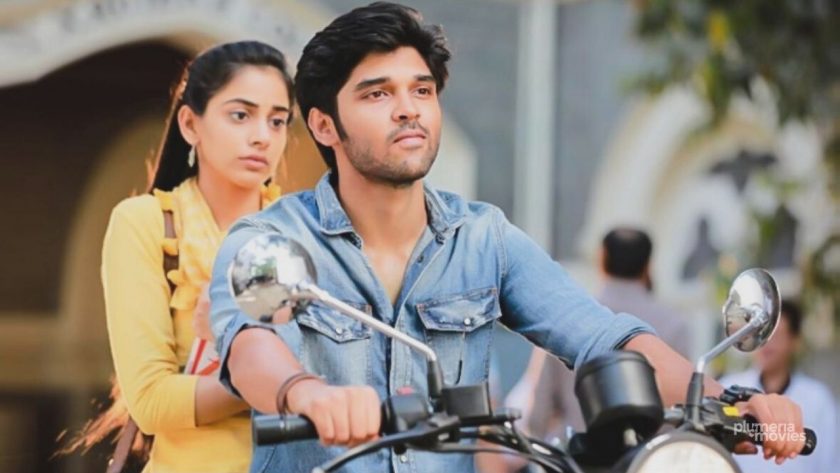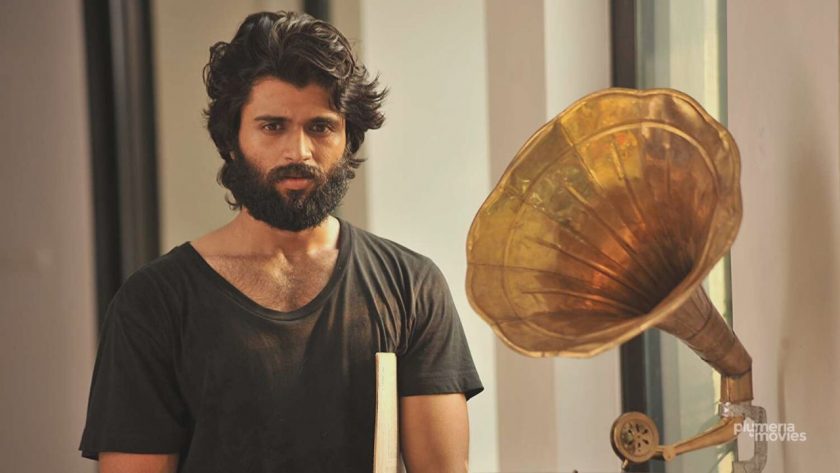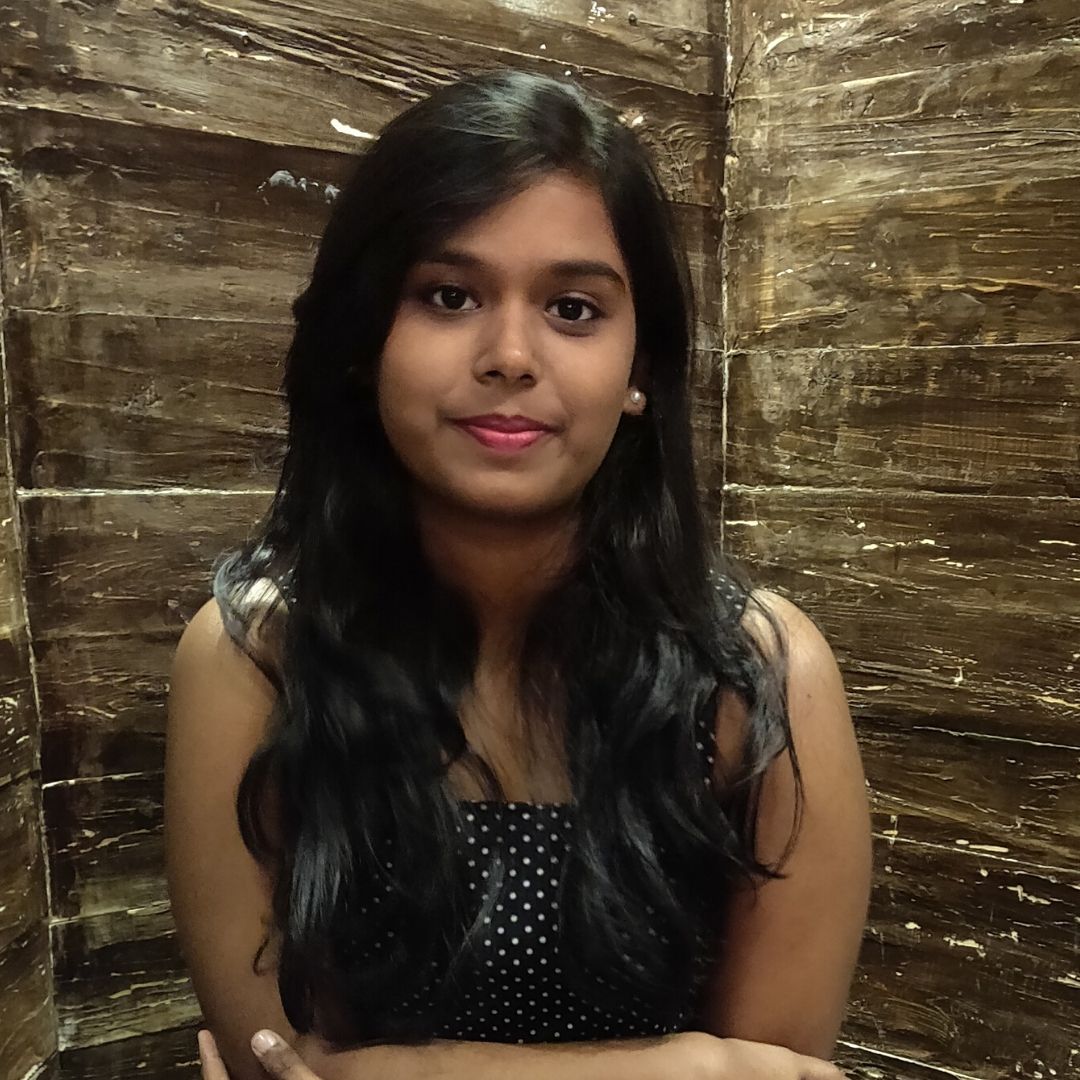2017, 25th August, a new heat wave emerging from Hyderabad engrossed the viewers of the nation in its swirl with a refreshing rawness, chronicling the chequered love story of a deeply flawed, impulsive man struggling as his own nemesis and hero.
Fade out: years pass, seasons change. Unforgotten, his shadow still looms large. When it grew prior six months, it was threateningly suffocating, standing unabashedly as the glorification of all our man’s flaws with the trailer itself claiming in bloody bold red: stubborn, self-destructive, ‘very, very angry’. It was a ‘mis-take’ treading along lines of insensitivity and insolence, irrationally attempting to make a hero out of the zero in Kabir Singh. 22nd November, the official Tamil remake of Arjun Reddy drops- Adithya Varma. The heart feels only the least rush of excitement, remaining indifferent besides the mild alarm of in what new way this sets out to rip the life off its original.
As the sun soared in the awfully hot noon, the daze took over opting for cancellation of the booked tickets, the plans to witness the offspring (ahem, should I refer to it as ‘by-product’ in Dr. Arjun/ Adithya’s words?) smile, weep, wail and put to sleep was abandoned. It was no fair deal to arrive at a dismissive conclusion on a movie yet to be watched. Eliminating the inevitable mental block was quite a hard work and there were only few traces of them left as the first frame of the film came to life with the hope of a new dawn.
Adithya’s grandmother’s, Leela Samson’s voice, the sound and substance of which itself bears a profound wisdom and affection recites the slogan on the testing power of time as the camera pulls back from the sun, lingering sharply over the ocean it has risen from allowing us a glimpse at Aditya staring into the promise of the morning, prior we are prepared to take a deep plunge into the sea of his suffering. He is alone by the shore, as we see it. Establishing his isolation and centrality with such effective immediacy did pique the interest and the attention grows keener, the theme of the recited verses can be summarised as in the adage- time alone can tell. We know what she means by it, this is a love that looks on the tempests and is never shaken. The tempest of all forces arrives from within and so does the vehemence to stay resolute.

Arjun Reddy, on the other hand begins with a blissful moment of union and peace, the waves of the sea singing lullaby to Arjun and Preethi embraced in the folds of sleep as Sandeep Reddy Vanga tells us: ‘the tremors of the ocean are reflected in the silences of the vast sky’. This stays and Arjun’s love for the oceans is telling of what he is- a vessel of abundant life and of death. The silent skies, facing the ocean through the light and the dark subtly dictate its movement and the hues as the sea rushes to the golden sands of the shore, retreating only to return. Built purely on this man and his romance which reveals him to us, Adithya Varma is evidently not an inventive retelling yet on a surprising note, it does not wane as uninteresting. It wades through the strong currents and crawls onto the shore, retaining the streak of energy from Arjun Reddy, offering a breathing space, a fine shade unlike the suffocation sourced by its Hindi predecessor. The hit or miss apropos a sensitive tale like this is largely on the presence or lack of certain nuances, the responsibility of which importantly lies on its performers.

The firmness of Shahid Kapoor, in contrast to the emotional flexibility of Vijay Devarakonda renders his Kabir as insensitive despite the actor’s recognition that beneath all the grey, Kabir is a man-child in dire need of help and love. Of course, there are things he does that Arjun/Adithya will not: he tells Preethi to wear her dupatta properly and pathetically reinforces that she is a nobody except for him. The performance of Vijay Devarakonda still stands tall for he does it with a primal animal energy to elevate the conflicted personality of Arjun. When he breaks down, he whimpers like a wounded animal, demanding our dearest sympathies and when he roars, he is as majestic and intimidating as a lion reigning the vast wilderness.
Adithya Varma is seemingly aware of what it can and cannot do with the problematic protagonist it seeks to house. As Adithya tells, life and death constitute only 10 percent of our lives, the remaining 90% lies in how we react to it. The reaction aspect is the element of surprise and is the immediate predilection one might own towards the original film. Now that the surprises are out there, the reactions are known and the impulses are already informed, it is only natural to look for more. Does Adithya Varma offer anything more? Sadly, it doesn’t want to.

Arjun Reddy is a blend of the five Is- innocence, insensitivity, irreverence, insolence and immaturity. While Kabir singles out the insensitivity aspect, Dhruv Vikram’s quite honest and original rendition of a known man highlights the innocence, child-like immaturity and ignorance of Adithya, a miserable and naïve man-child. The first time we look at him, we are indeed hearing about what a stubborn kid he was, the man has not just come from such a space, he still revels in it. He is a spoilt brat whose outrageous acts are condoned by his rich parents. We hear his wildly peppy ringtone and become aware that he is a college kid and not an entirely authoritative person warning his juniors to steer clear of ‘his girl’. His love for Meera- tender and toxic at once arises from such an intense yet irrational place, falling prey to its rage and whims. The film doesn’t stray from the zero he is, only the popular viewers fixate on such a view otherwise.
When you regard him as a man- child, a fresh ridicule creeps into the screen bearing no mockery but a benevolent and innocent acceptance. When Adithya passes out on the drugs, it is as if an impatient, angered child, out of the zone of help has wetted his bed. Note what he is doing prior learning about Meera’s marriage- he is playing, flying kites. When his brother wishes him to come back home, he tells him that they are getting his favourite bike, in the lines of offering playful bribes to a kid, only that the child being dealt with, is 26 years old, a surgeon, heart- broken but nevertheless this is a child whose sorrows can be subverted to a degree by a fluffy pup, a child who still believes in magic, the magic of love and its by-products. He draws the essence of his personality also from the psychological qualities present in children prior they grow out of childhood- centration and egocentrism. Centration is the tendency to heed to only one aspect of the situation while egocentrism is the inability to regard a perspective which is not the self’s. This strongly plays out as Adithya regards Meera’s issues at home with no empathy. Dhruv’s irreverence and streaks of innocence is solid. There is no denial that there is a numbness in his pain starkly visible for we have seen the ferocity of Devarakonda’s which gnawed at our hearts.

While the music too remains merely a translation of the original, it is gladdening to witness Madhurame, the mystical nature of it rendering an almost transcendental quality to the love, voicing the blossom of a woman’s desires. Banita Sandhu’s Meera, saintly and devoted is a genuine integration of frailty and agency. The cinematography of Ravi K Chandran succeeds in staying afresh paying specific emphasis to the sun, attempting constantly to equate Adithya to it. We see him initially facing the dawn and the sun is strongly significant when he fills his liquor bottle with the water from the tank. The stunning visual association, however finds no conceptual reinforcement except Adithya’s name itself. When Aadhi rushes to the harassed Meera, his anger and pain mount on itself every second and we see a blast of heavy red hues, the Holi colours, he faces and emerges from. In Amudhangale, post the love- making, Adithya and Meera are seen in an inverted angle, drunk in love, the camera slyly commenting that their worlds have now turned upside down.
Besides these briefly refreshing aspects, Adithya Varma arrives with nothing particularly stirring and new. In totality, the film might not be an excruciating exercise despite pressing presuppositions, yet certainly it is not an exciting exercise too. In times where the film is celebrated for troubling reasons, this revisit with no revisionism of perspective bears no hint of hope and it is no new dawn. This takes the mind to Ayogya, a remake of Junior NTR’s Telugu flick, Temper which was also remade in Hindi as Simba with Ranveer Singh. When Ayogya took its shape from Temper, it did dare to give its mass, masala hero a credulous and sensible closure unlike in any major commercial movies, at least in the recent times. When I walked into Adithya Varma, the heart did helplessly hope that somewhere, I might spot a new perspective. With Bala’s version scrapped, it is clear that they were not going for an adaptation but an entirely faithful remake. While the film surprisingly does fine by itself, it is personally regretful that if Ayogya could dare it, why not Adithya Varma?
I understand that this is a story that cannot be majorly modified but what of a little perspective? Why not let it play from her viewpoint, let the story be his, why not give her the point of view as she struggles through a year, holding on to an unborn child, her heart rushing back to him, still loving, forgiving and incredibly unjudgmental as the original suggests. This would be an exciting and empathetic tale too. Now, here is the film I will buy tickets to with no second thoughts and any sort of daze.



Be the first to comment on "Is Adithya Varma an excruciating exercise after all?"